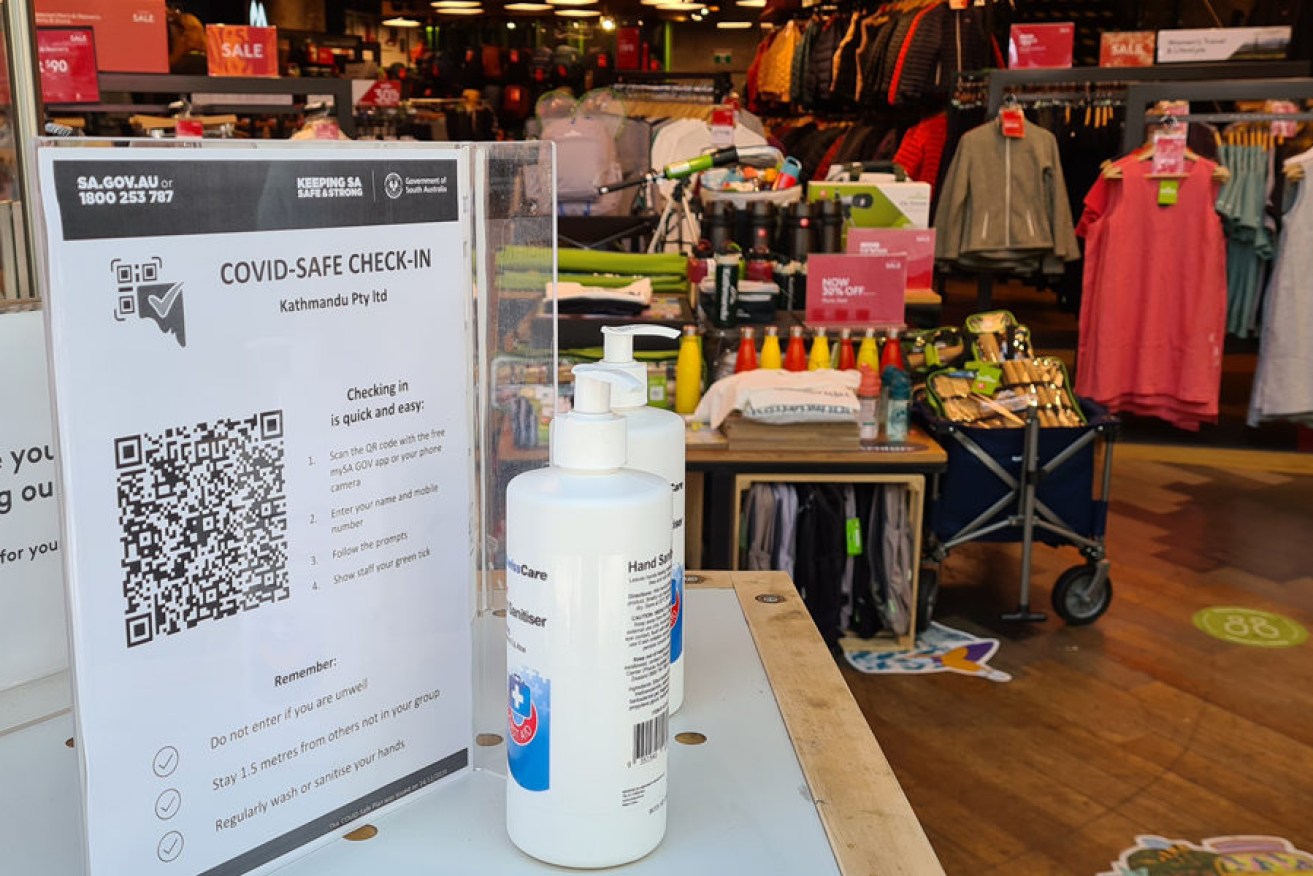Hospitality cap remains but QR code use under spotlight
A 75 per cent capacity limit on hospitality and retail venues won’t be raised yet, the transition committee has ruled, while SA Health looks into why public use of QR codes had declined by up to 20 per cent across the state.


(Photo: Andrew Spence)
The state’s transition committee this morning met to discuss the level of COVID restrictions in South Australia, which include the current cap on retail and hospitality venues.
Assistant Commissioner Noel Bamford said the transition committee saw “no reason to change” the current restrictions “given the current climate”.
“It’s worth noting of course that we took into account the current outbreak in Western Australia,” Bamford told reporters this morning.
“The concerns about releasing any more restrictions probably relate more to the level of the vaccine rollout.”
Health data from the Commonwealth released on Monday reveals SA Health has administered 60,515 vaccines from 117,190 doses distributed by the federal government.
A total of 167,476 vaccines have been administered in South Australia since the rollout began.
Bamford said there was “no set timeframe” or number of vaccinations that would prompt the transition committee to change the current public gathering restrictions.
“I think the perspective is that the more people that are vaccinated, the better the level of confidence that everybody will have that the risk has been managed,” he said.
“I’m sure everybody understands the virus is very unpredictable, we have outbreaks in other states, there’s always the risk of an outbreak in South Australia.
“So erring on the side of caution is always the best way to manage the risk.”
The meeting comes as calls grow from the business community to lift the current density restrictions, after SA Health last month approved a 100 per cent capacity crowd to attend this week’s Showdown at Adelaide Oval.
“I absolutely understand the desire of all businesses to get back to normal as soon as possible,” Bamford said.
“I would point out that the events at Adelaide Oval are controlled by COVID Management Plans [and] there are significant controls about the way people move through the stadium.
“I think it’s a little bit of a leap to compare general circulation in small businesses to what goes on in the stadium.”
Meanwhile, SA Health has commissioned a study to examine why there has been a drop off in QR code usage in SA.
Bamford said the average number of QR code check-ins each day in SA has dropped to around 800,000 to 900,000 a day – down from one million earlier this year.
“I can’t pre-empt what the findings [of the study] will be, but intuitively I’d suspect that people have been getting complacent,” he said.
“We really need to urge people not to do that.”
The assistant police commissioner said no alternative method of contact tracing was discussed by the transition committee, but increased penalties for QR code misuse is a “tactic that we could consider”.
“Let’s find out what the researchers find, and they’ll give us some recommendations and we can take them on board.”
The transition committee in February introduced new penalties for privacy breaches of contact tracing data, with individuals facing $1000 fines and businesses facing $5,000 fines if they illegally access confidential contact tracing data written on paper sign-in sheets.
South Australia recorded two new cases of COVID-19 today, both reported from a medi-hotel.




